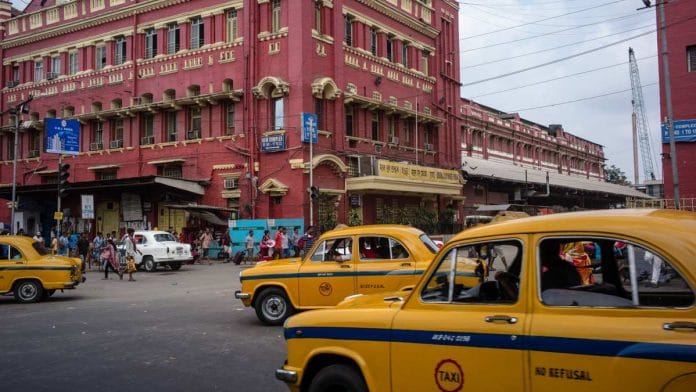When poet-activist Bappadittya Sarkar discussed the anti-CAA/NRC/NPR protests with a friend over the phone while riding a cab in Mumbai recently, he probably had no idea that his Uber driver was listening in on him, forget being disapproving enough to take him to the police. After all, aren’t rickshaws and cabs considered among the safest spots to speak your mind?
Talking to cab and auto drivers about politics or to learn about the mood of a place is the oldest cliché, probably as old as the hills. Every tourist’s first point of contact with a new place is a driver; every writer uses their conversations with drivers to add feel to their story; every lazy journalist and Twitter activist will share such conversations as gospel-true evidence to support their current hot takes. And this is especially true during elections, when journalists build stories around conversations with auto or cab drivers – to offer a ‘ground report’.
And it isn’t just limited to drivers being privy to their passengers’ playlist, but includes other service professionals, too. Salon staff, for example, often know all about the romantic entanglements of their regular customers, while your cook can figure out if you’re arguing with your mother on the phone. In fact, service staff know more about their customers than the latter realise. And this is because customers don’t see them as a threat. Why should anyone? They have a job, they’re paid for it, and that’s that. Right?
Not exactly.
Also read: Delhi’s cab, auto drivers are upset with Kejriwal, AAP. But here’s how they plan to vote
Safe spaces, no more
Cabs and autos, for one, have long since stopped being neutral political ground, with unions and their demands often becoming election issues. In Delhi, which votes in the assembly election Saturday, Chief Minister Arvind Kejriwal, possibly the first one to politicise them, is known for having mobilised auto-rickshaw drivers in his support, many of them displaying the slogan “Kejriwal Mera Hero, Bijli Bill Mera Zero” on their vehicles.
In today’s extremely polarised India, things are not as cleanly transactional as paying for a service with no concern for the other person’s politics or religion. On the one hand, you have people complaining that they want their Airtel customer service executive, Zomato delivery person or Ola driver to be “non-Muslim”; on the other hand, you have a driver take his passenger to the police because he disagrees with his politics that he happened to overhear. George Orwell would have a field day in today’s India.
Clearly, things are changing – to the point that you could get in trouble whether you’re talking to the driver or someone else.
Also read: Facebook, Swiggy, Zomato, Netflix — how AI is finding its way into our daily life
It wasn’t always like this
In 2008, when Delhi held its first Queer Pride Parade, I took an auto-rickshaw to the meeting point of the march. While I was counting the change, my auto driver, evidently curious about the rainbow feathers and glitter-covered humans singing and clapping, asked me what this was all about. I didn’t quite know how to respond, but I did my best, saying that “jab koi aadmi kisi aur aadmi se pyaar karta hai, yaa aurat aurat se, kanoon isse jurm maanti hai, aur issko badalne ke liye yeh rally ho rahi hai” (when a man loves another man or a woman another woman, it is illegal and this protest is to change that). He didn’t respond immediately, just nodded slowly. I felt bold enough to ask him what he thought about this, and was delighted when he responded that he agreed homosexuality should not be a crime.
Last year, in the weeks before the Lok Sabha election in May, a friend of mine played Aisi Taisi Democracy’s Ode to Demonetisation song every day while using public transport, varying it up with something called Chowkidar Chor Hai when she was bored of ATD. She found it was a good conversation starter with the drivers, who would invariably listen and either smile or frown, depending on their political beliefs. While stuck in traffic jams, they would discuss everything from Balakot to jobs to mob lynching over beef – and my friend never had an unpleasant experience.
Perhaps all is not lost yet, and it is up to those who still have a bit of fight in them to save the safe spaces. When I spoke to my friend about the Uber Mumbai incident, she laughed and said that until election campaign time ended in Delhi, she had her playlist ready.







Driver is evidently an avid student of what’s app and Facebook university.
Sounds a bit like the Soviet Union, at its peak.